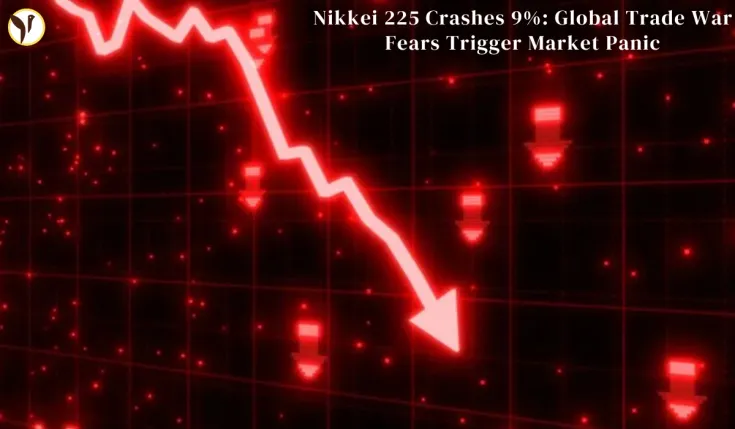Nikkei 225 Plunges Amidst Global Trade War Fears
The Nikkei 225 index experienced a dramatic near 9% plunge on Monday, marking its lowest point since October 2023. This sharp decline, fueled by escalating concerns over a global recession triggered by President Trump's new tariffs, sent shockwaves through Asian and global markets. The sell-off wasn't isolated to Japan; India's Sensex and Nifty also tumbled, although the impact was less severe due to India's relatively lower reliance on US exports.
Banking Sector Takes a Hit
Japanese bank stocks bore the brunt of the sell-off, plummeting as much as 17%. This significant drop reflects anxieties about the economic fallout from the trade war, particularly its potential impact on lending and economic growth. The broader Topix index also suffered an 8% decline, with all 225 component stocks trading in the red.
Global Market Reaction
The Nikkei's sharp fall mirrored similar declines across Asia. Hong Kong's Hang Seng, Shanghai Composite, and South Korea's Kospi all experienced substantial losses. Analysts attributed the widespread panic to the uncertainty surrounding the trade war and the lack of any immediate policy response from the Trump administration. Many expressed concern that the sell-off could spiral into a full-blown global recession.
Experts Weigh In
Analysts offered a range of perspectives, with some predicting further declines unless the Trump administration signals a willingness to negotiate or modify its tariff policies. Others pointed to the potential for a market bottom once the initial panic subsides and some clarity emerges. The prevailing sentiment highlighted the extreme volatility and uncertainty gripping global markets, leaving investors anxiously awaiting developments in the ongoing trade dispute.
Looking Ahead
The Nikkei 225's dramatic plunge underscores the significant risks associated with escalating trade tensions. The situation remains highly volatile, and investors are closely monitoring developments for any indication of a potential resolution or further escalation. The global economy's resilience in the face of this trade war remains to be seen, but the immediate impact on markets worldwide is undeniable.






